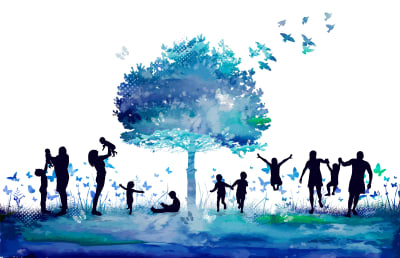Writing... and us
By Ron R. Lacson
The words we write may not be the words we speak regularly; they are rather words we think daily.
It has been a few weeks now since I wrote my last blog. I laughed at myself this morning because one of the promises I made at the beginning of this year was that I should write at least one (1) article a week, and I did not live up to it.
Well, the simple reason why one falls short of his commitment is that sometimes life takes over. One becomes occupied with newer priorities and more pressing issues. So no more promises.
There will be only a commitment to do my best to write when there is an opportunity, and that’s another promise (and didn’t I mention I won’t make promises again ).
Weeks have passed since I sat in front of my laptop computer and tapped the keyboard with my fingers to write.
For many days I was contemplating the idea of writing another good story, but then it hit me that I am not as smart as what my overly harried world suggests. It is not easy for me to write. What I must first do is organize my thoughts.
So my initial plan to write several short stories or articles in a week sounded like just a typical frippery of a man with more dreams than sense. It will remain a dream for a while.
Though there are always stimuli to make me believe that I can write, it is not out of the blue to realize that I am not a prolific writer, far from it. So the next good article will have to wait. I cannot write another story yet, at least not today.
But why do people write?
Why do many folks write (even at times when it’s hard to write)?
My simple belief is that people write because they have something to share, or they want to keep records of what they think.
Written words are extensions of our thoughts.
They serve as bridges in putting forth the sublime and the low; the funny and the lame; the exciting and the boring; the private and the public; the clean and the sordid, in other words – truths (or perceived truths) that entertain, hurt, inform and teach.
Written words have more impact because we become the words we read; we become the heroes and the heroines we imagine; we become the characters in the story, and we become the teachers who inform.
We not only become part of what we write, but we also take the form of its shape and rhythm for our amusement. Written words are the catalysts of change.
When someone writes, he wants to share his thoughts. The choice of the audience varies, however. A writer may want to share what he writes to everyone, to a selected few, or just to himself.
Another question is: when do we write?
I value every minute of a discovery of an idea, or a conflict, or joy or an imagined riveting account, so I know that I need to put them in writing the soonest.
And that is one reason why I created for myself a motto that goes like this -
‘a writer who delays the writing of his thoughts, is like a man who makes a cup of hot tea after the water from the kettle cools down.’
It’s not to say that it is an easy task because there were times those ideas and thoughts came like politicians promising long bridges and roads.
And once you started to act like you wanted to write them on paper and record them, your thoughts and ideas will leave you like they never knew you, and they are never to be found again until perhaps when you become inspired to look for them back.
Prolific writers seldom have these challenges, and if they do, they can overcome them.
For that reason, I admire and respect them all.
Writing is so powerful.
A piece (a story, a song, a poem, a lecture, etc.) that could be a straightforward, organized series of thoughts from an author can already be a moving and life-changing voice to a particular reader.
Writing can be scary, too, for an author who may never really know the exact substantial impact (positive or negative) his piece will produce to an individual or a group.
A particular reader or group may interpret what the author wrote based on the reader’s own experiences or the reader’s agenda. This basic fact – an already accepted basic in the writing world – is, however, not stopping many writers from writing what they have in their minds.
Actually, the reverse is more genuine.
Writers write because they want to produce impact; they want to share; they want to make an influence; they want to tell people what they can write about because no matter what window-dressing a writer puts in his piece, the words he writes and uses reveal a facet of who he is that manifests his genius or his folly.
There is no pretense in writing.
We are what we write. The words we write are what we think. The words we write may not be the regulars we use in our daily conversations, but they are the words that occupy our consciousness, and they matter to us.
The piece we write may or may not survive the invading forces of future ideas or philosophies, but they represent who we are and serve as the ambassadors of our wisdom at the time of writing. And the readers are the judges.
Most of us are already writers in more ways than we can imagine ourselves to be. Emails, SMS, WhatsApp messages, Skype’s, FB’s timeline/comment/chat sections, etc. are vehicles we use these days to write.
We write because it is part of our work or because it is part of our daily lives. We write to communicate, and whether we like it or not, what we write discloses certain parts of ourselves. We transform our ideas into written words and express our feelings through penned sentences.
And even if we keep our faces stoic while writing, our words will still reveal what we feel,
-because in writing we cannot control our inside smile;
-because in writing we cannot fake our internal sadness;
-and because in writing, we cannot hide our deep excitement about the things we want to share.
And because most writers articulate how they view the world and craft their piece as a tool to share their dreams and values, their success and failures, their fears and visions, it then follows that in writing, there is always hope.
We write not just because we can; we write because we hope for ‘hopes’ to come even thru the words we scribble.
What about you? Why do you write?


















